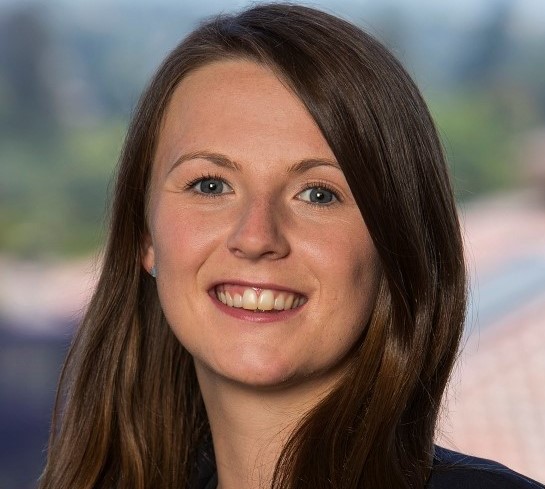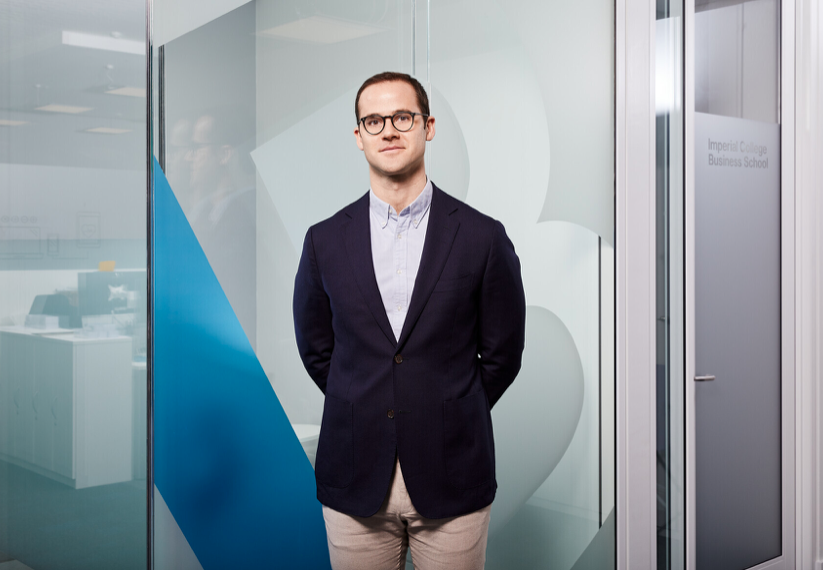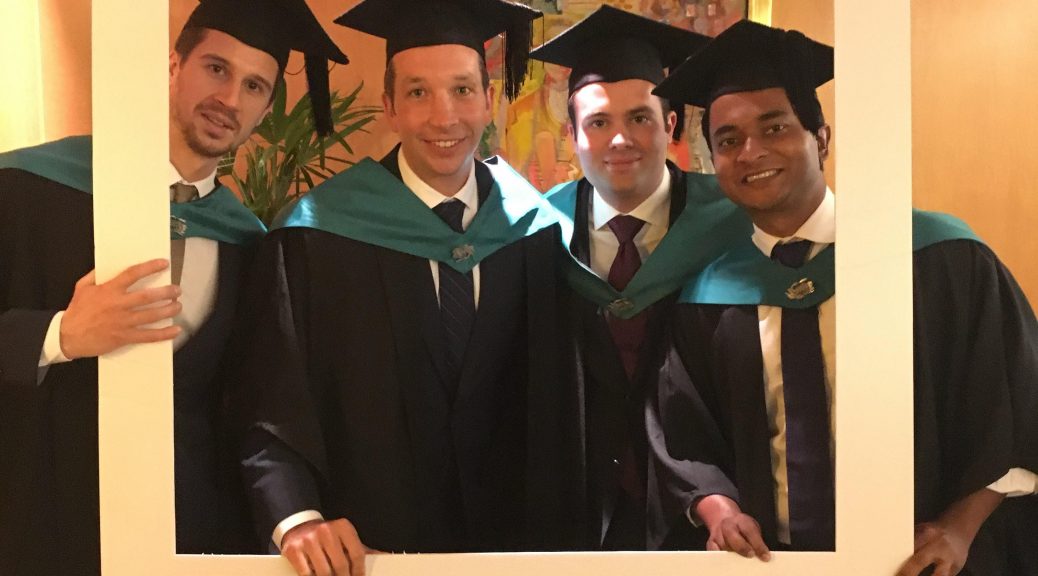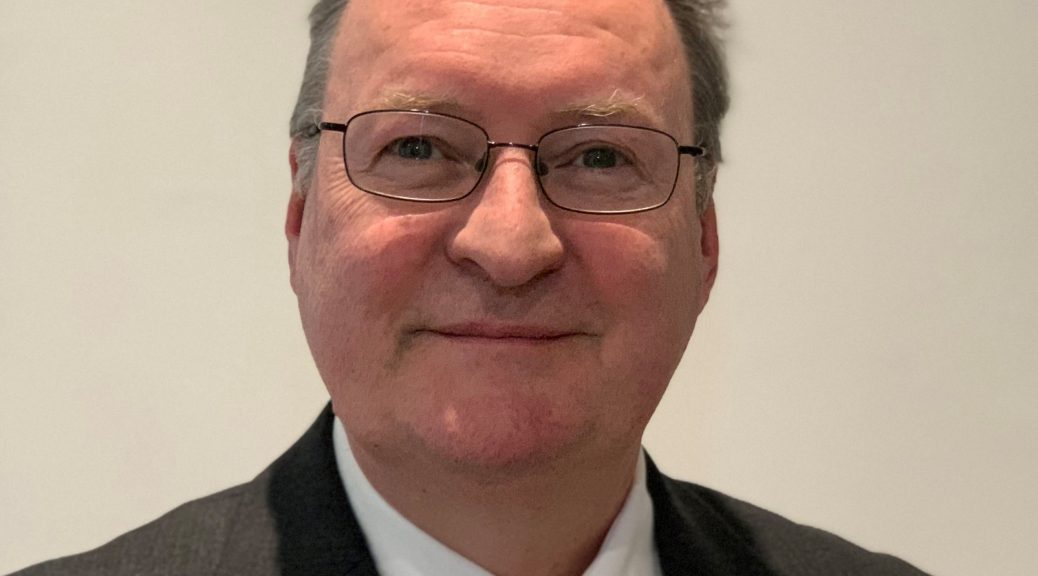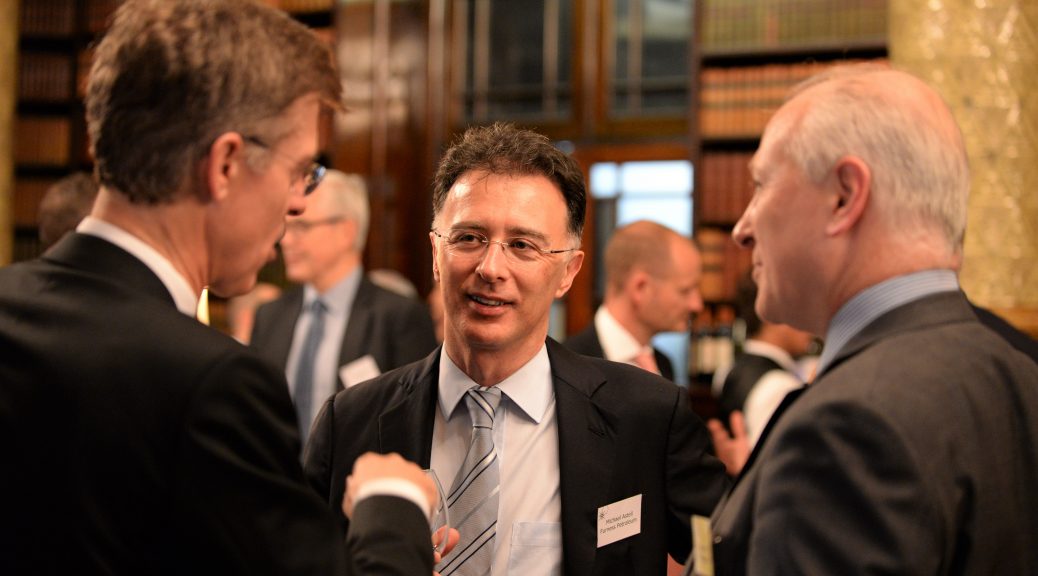
Deciding to do an MBA is a big decision and cost is a major factor. For most, the cost of attending business school is daunting enough, let alone attending one of the most prestigious schools in the world in a country you have never visited. For UK-born Imogen Rey, now a Senior Manager at global management consultancy Bain & Company, her MBA at Stanford Business School in California was an eye-opening and inspiring experience.
Imogen’s studies were supported by a scholarship from her employer and a Sainsbury Management Fellows (SMF) MBA scholarship, without which, Imogen says, she would not have been able to attend Stanford and build an exciting career in the US. Imogen tells us how a business education enabled her to transition into a leadership role at Bain & Company.
Starting My Engineering Journey
My journey to becoming an engineer began with a love of maths and science and a natural aptitude for the practical, problem-solving aspects of both subjects. I was fortunate to be at a school with strong maths and science departments run by passionate teachers who encouraged students to pursue these subjects.
Initially, I was fascinated with biomedical engineering after having read books and watched documentaries showing the impact it has on people’s lives – from high-tech prosthetics giving paralysed patients the ability to walk again, to replacement valves keeping hearts beating. Whether through prosthetics, bridges or aeroplanes, I was inspired by the impact engineers can have on the world around us.
I did my engineering degree at Oxford University. Apart from it being a prestigious university, I liked the environment and the people I met there. I chose a four-year course; the first two gave me the opportunity to try out all engineering disciplines, and the last two allowed me to specialise in mechanical engineering, which I found I enjoyed the most.
Towards an MBA
While I was studying at Oxford University, I interned for two summers at Jaguar Land Rover. I worked on various projects and loved analysing different problems and working towards solutions. I found that engineering training gives you a set of powerful analytical skills which enable you to tackle complex projects spanning different areas of business.
When I graduated from Oxford, I decided to go into consulting as a way to experience a broad range of industries and projects. I was delighted when I was offered a position as an Associate Consultant at Bain & Company in London. Bain is a global management consultancy that works with large businesses on projects spanning strategy, operations, finance, transformation, digital and more. I used my analytical skills to help clients address their highest priority challenges. Around two years into my time at Bain, I started thinking about the benefits of business education. I spoke to colleagues and clients who had done an MBA and they all spoke so highly of the experience that I decided to apply. I believed an MBA would give me a deeper understanding of my clients’ problems, complement my engineering skills, and open new career possibilities.
I was accepted by several schools including Harvard, Wharton and Stanford, and visited the schools before making my decision. A few things made Stanford the most attractive option for me. It has smaller class sizes than the other schools, which I felt would offer a more personalised experience and allow me to chart my own path through the two-year course. I also liked that they use a mix of different teaching styles. They have lectures, case study-based teaching, and experiential classes. Stanford also has a strong leadership curriculum which I was drawn to as I am very interested in the people side of organisations. Stanford over-indexes on this area and has some fascinating pathways and approaches to teaching leadership skills.
Financial Support for My MBA
Once I had decided on Stanford I spoke with my employer and they were happy for me to take time out to do the MBA and offered some financial support contingent on my returning to the company after graduation.
Although I was sponsored by my employer, I still needed additional financial support – I did not have significant means myself, or family members who could support me, and while you can fund your MBA with a loan, I was uncomfortable taking on such a large debt. An MBA is an investment in your future, but it is a significant outlay. Before I started researching other funding sources, I recalled a conversation with an engineer I met at an event, who was also working in management consulting and had received a Sainsbury Management Fellows scholarship for her MBA.
I investigated the SMF scholarship scheme, submitted my application, was selected for an interview and, to my delight, was awarded a £30,000 scholarship. Without the SMF scholarship, I would not have been able to attend a world-class business school or move myself and my husband to California. The funding allowed me to show US immigration that we had sufficient resources to cover our living costs, allowing us to get the visas we needed.
The MBA Experience
Arriving in California was hectic – there was so much to do. I had to organise an apartment, buy everything I needed to get settled in at home and business school, and there were a lot of new people to meet and get to know.
The business school experience was very different to my undergraduate degree. At Oxford, I attended a lot of large lectures, followed by individual work on problem sets. At business school, the classes were smaller and more centred around debate with no single right answer to the issues we were exploring.
The diversity in my class made for fascinating discussions. There were people from so many different countries, industries and backgrounds, all of whom had different perspectives and aspirations – it was a melting pot of ideas and a truly unique experience.
Mixing with so many new people also opened my eyes to a much broader range of career paths. Many students were involved in entrepreneurial ventures and there were lots of large tech firms in the area, and both sectors were hiring a lot of engineers. The experience showed me that the fusion of different skills and perspectives is essential for the innovation that will define our future.
Lessons from Business School
Going into business school, I was keen to focus on softer skills such as leadership. At Stanford, I had the opportunity to learn from leaders with decades of experience. They shared strategies to manage people, deal with difficult situations, drive organisations forward and problem solve. Their years of wisdom and expertise have been invaluable to my post-MBA career.
Among the most important things I have taken away from business school are the relationships with my peers. During the two-year course, I made life-long friendships and strong connections with many people I would feel comfortable turning to for career support, particularly when it comes to making big decisions or exploring new paths.
Going to Stanford also broadened my horizons and gave me the opportunity to explore different career paths, including an internship at Amazon’s headquarters in Seattle. It was fascinating to work at a big tech company, and it taught me a great deal. One of the key things I learnt was the importance of autonomy and the freedom to innovate. I observed Amazon hiring talented people and giving them the freedom to spend time developing new ideas, an approach that I think has been key to their continued success.
An Exciting New Role at Bain & Company

After I graduated from Stanford, I decided to transfer to Bain’s New York office, where I have been working for two years now. Returning to Bain has allowed me to gain further exposure to diverse companies and work on some of their highest-priority projects. The environment is fast-paced and challenging, and I am learning a huge amount, which is a priority at this stage in my career.
Having an engineering background helps enormously in my role at Bain. A big part of my job is to take a problem and break it down into components, and then analyse each component before putting them all back together again. My engineering training taught me how to approach problems in this way, and to find a logical path through complex issues.
Before my MBA my role was primarily analytical. Now I spend most of my time developing the approach, drawing insights from the analysis, coaching and developing my team, and building relationships with clients. Stanford gave me the leadership training, confidence and broad perspective I need to succeed.
The SMF MBA Scholarship
If you are a professional engineer considering an MBA as a stepping-stone towards a business leadership career, visit our MBA scholarship application page, you could be awarded a £50,000 scholarship.





